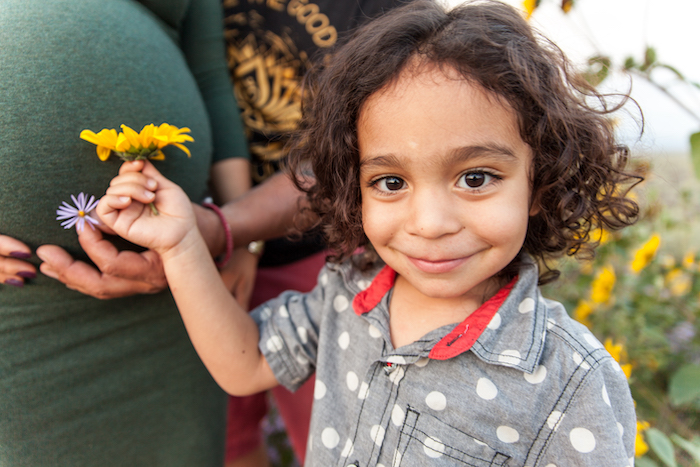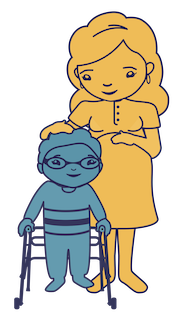
Updated on December 23, 2021
Stressed Out by Caregiving During COVID? You Aren’t Alone, and There’s Help.
Having a new baby or a toddler can be stressful during the best of times. Layer on the global COVID-19 pandemic, and that stress has a tendency to boil over. So, what can caregivers do when they feel overwhelmed?
Moments Together put that question to Tekla Johnson, who is a pro at helping families. Tekla is the director of First Born, a home visiting program that supports families from pregnancy through the toddler years. She had some tools and reminders to share for anyone struggling to manage stress while raising young children.

Interested in home visiting?
Click here for more information and some links to get you started. You can also go straight to this early childhood search portal, which lets you search for early childhood services in your area, including home visiting.
Pandemic Stress is Real
First of all, remember that you’re not alone if you’re feeling stressed right now. The COVID-19 pandemic has limited families’ access to support, making caregiving lonelier than it might otherwise have been.
“I think that people don’t have a break, is the big thing,” Tekla said. “Even before the pandemic, it was hard for new parents and parents of young children to have a break, but there were things more readily in place.”
During the past year, she said, visiting friends or inviting relatives to come help with a baby have been harder to do. When we do see friends and family, there is new anxiety about spreading illness or wondering if everyone is on the same page with their precautions. And some families have just decided not to risk bringing in help at all.
“I’ve had parents say to me, or say to their home visitors, that their baby is now a year old or even a little bit older and actually has never been held or cared for by anybody else, except for that one or two parents, whoever is in the home, and that’s it,” Tekla said.
Home Visiting Can Help
 With limited access to support and all of us feeling stress during COVID-19, home visiting is one of New Mexico’s best resources for families with young children (and it is free!). Every parent needs someone to rely on, and home visitors can be that support. They are friendly experts who come for regular, planned visits in your home (right now visits are virtual). Home visitors can guide you to the answers you need on a wide range of topics including safe sleep, injury prevention, nutrition, child care, breast feeding, and, very importantly, home visitors are also there to listen. Tekla said that a supportive ear has always been an important part of home visiting at its best, and is even more important now during COVID-19.
With limited access to support and all of us feeling stress during COVID-19, home visiting is one of New Mexico’s best resources for families with young children (and it is free!). Every parent needs someone to rely on, and home visitors can be that support. They are friendly experts who come for regular, planned visits in your home (right now visits are virtual). Home visitors can guide you to the answers you need on a wide range of topics including safe sleep, injury prevention, nutrition, child care, breast feeding, and, very importantly, home visitors are also there to listen. Tekla said that a supportive ear has always been an important part of home visiting at its best, and is even more important now during COVID-19.
“It’s a non-judgmental person who listens well,” she said. “And every week you can talk about what’s been happening and what your struggles and frustrations are, and know that you’re going to be heard and respected and supported through whatever is going on.”
If you’re interested in home visiting, you can find more information here and here, and can search for early childhood services in your area (including home visiting) at this portal.
“I do my best. I let go of the rest.”
Need some tips to try right now? Tekla shared some stress management tools that you can use any time throughout your day. Her go-to starter tip is helpful for self regulating when emotions get intense: While breathing deeply in and then out, say silently to yourself “Breathing in, I do my best. Breathing out, I let go of the rest.”
Tekla said the practice can make a big difference in the moment. “You could be having it out with your child who’s melting down, and with one breath you can actually feel your shoulders relaxing.” She said the one-breath practice can also be taught to kids, reframed this way: “Smell the flowers (deep breath in), then blow out the candles (deep breath out).”
Small Delights
Look around your space. Do you have to push aside a plastic T-rex to get to your keyboard? Has your favorite crafting nook become a distance learning classroom, with no space left for you?
Tekla suggested paying attention to your space and the way it makes you feel. Even with limited space, you can place objects in your environment that please your senses, such as a good-smelling lotion or a vase of flowers. Tuning in to sight and smell can help you stay more present and create small delights in your day. Try taking this challenge: Find three things that help you feel joyful, and put them in a space where you spend a lot of time. Think about things you like to see, smell, or touch when choosing your items. Then make room for them, even if you have to move some LEGOs first.
Thinking About Stress Differently
Finally, Tekla recommended this TED Talk about reframing how we think about stress. The talk, by health psychologist Kelly McGonigal, is about the upside of our body’s stress responses, such as increased heart rate or sweating. These responses, she says, are the body’s way of preparing for something new and challenging.
“It’s changing our view of things,” Tekla said. “My heart beating fast doesn’t mean that I’m about to have a panic attack or that something’s wrong, it means my body is gearing up for the next challenge in my life.” Thinking about stress differently can actually lessen the negative physical impacts of stress and help us live with it better. During a global pandemic when there is a lot we can’t control, changing our outlook may sometimes be the best we can do.
“That’s the thing with the pandemic; we can’t really change it, but we can change how we think about it,” Tekla said. “And it’s hard. I’m not saying it’s easy, but it is an opportunity.”
Support is Available - You Don’t Have To Do It Alone
If you are experiencing stress that is ongoing and severe, and is consistently preventing you from enjoying your life or supporting your children, consider seeking behavioral health services from a licensed professional.
If you have a home visitor, they can help you with a screening for perinatal mood disorders or other challenges that might be making it difficult for you to thrive. They can also help refer you to services in your community. If you’d like to start your search on your own, the New Mexico Behavioral Health Services Division offers this web portal as a starting point.
Whatever strategies you choose, be gentle with yourself. You’re doing a hard thing during an exceptionally hard time. And remember that taking care of yourself is another way of taking care of your little one. Or as Tekla put it: “When parents are doing better, babies are doing better.”
New Mexico offers 30+ home visiting programs around the state that are tailored to your needs and your family.
Did you find this article helpful?
Subscribe to Bright By Text to get more free tips and resources for your child’s journey, right to your phone!
